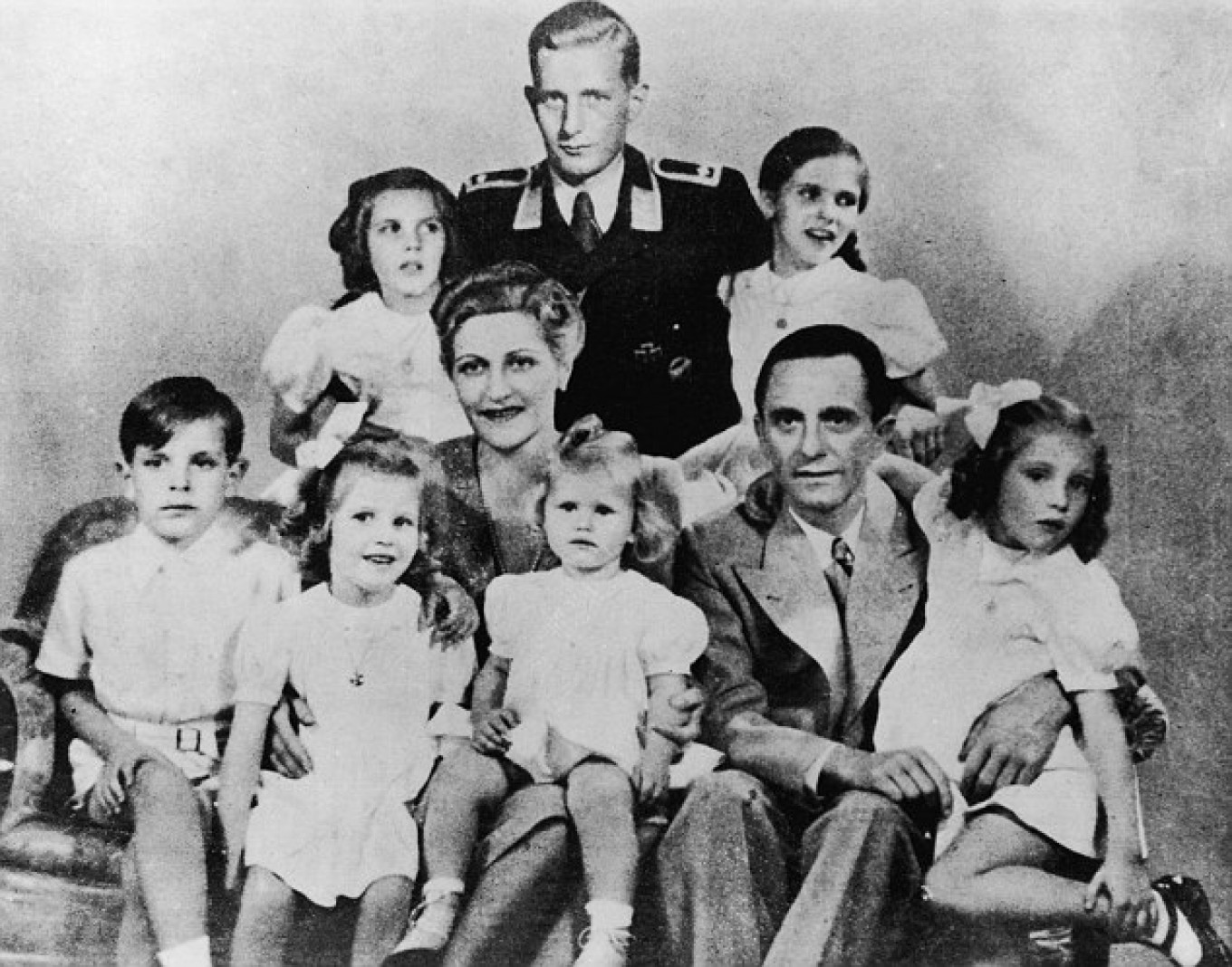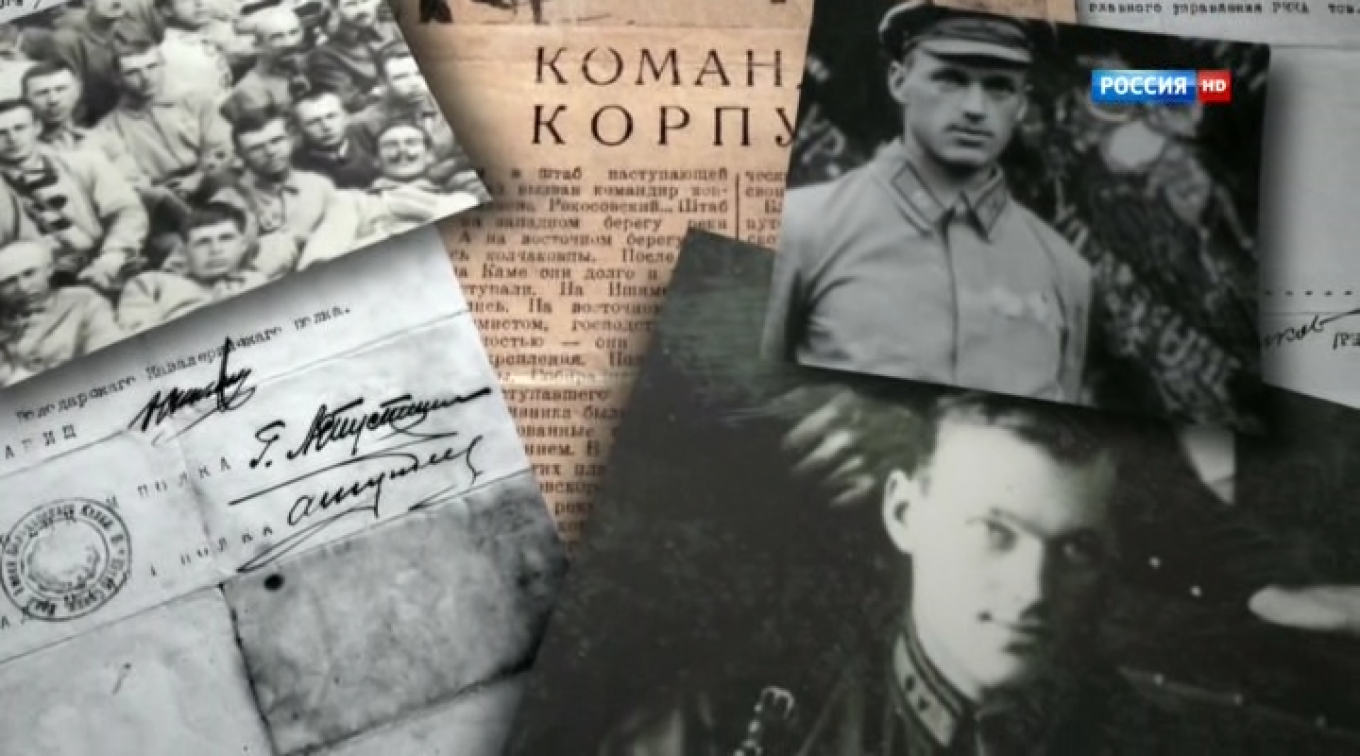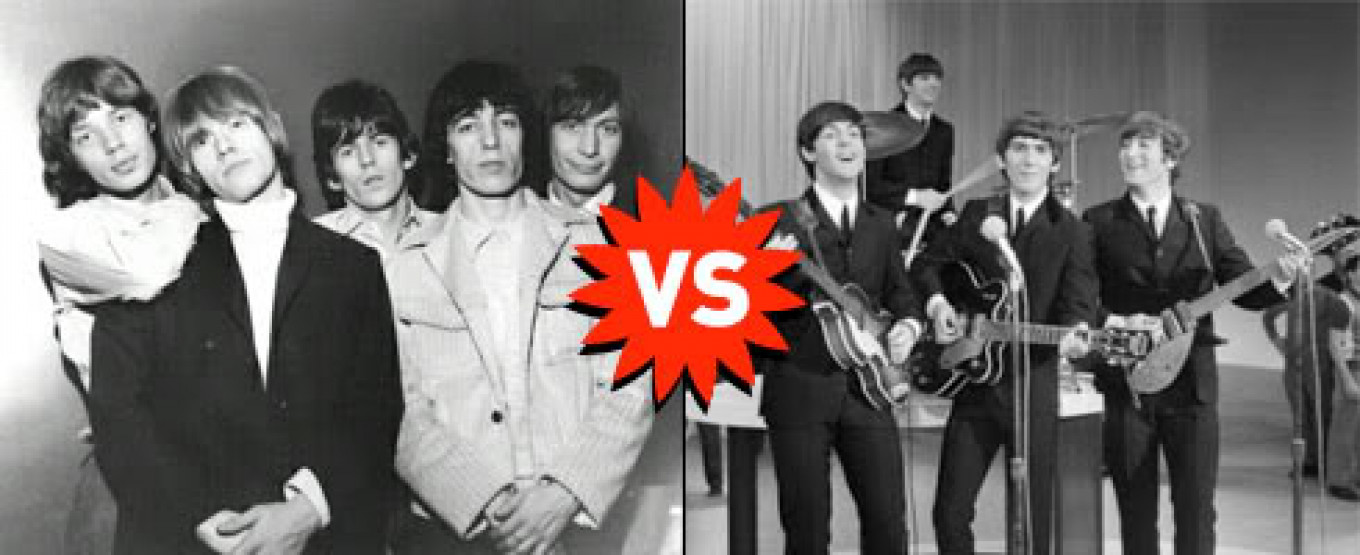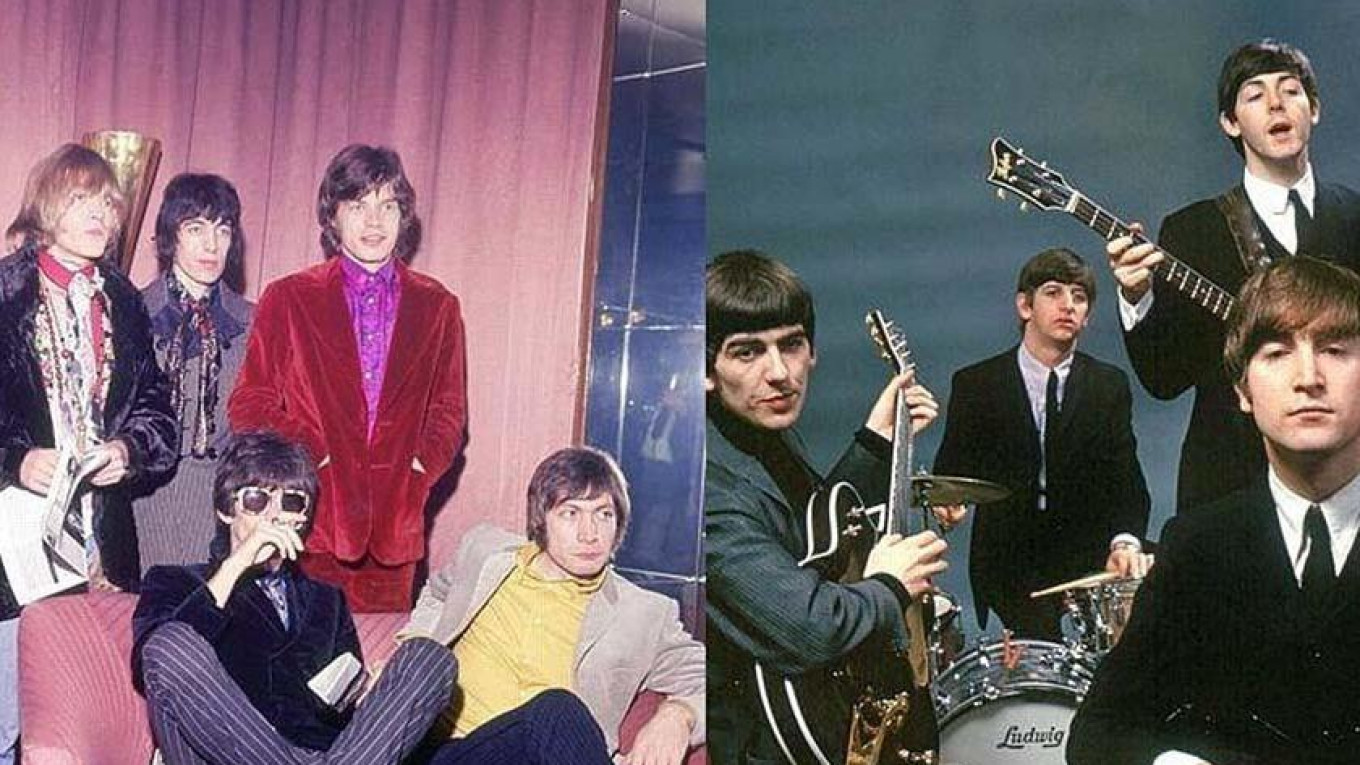It’s Cross-Cultural Documentary Week on Moscow TV, as the small screen offers excellent Russian non-fiction features on a French-Russian master artist, a Polish-Russian war hero and the children of famous and infamous Third Reich Germans. Viewers also get a French assessment of the two greatest British rock groups and a revealing new look at Mikhail Lermontov as poet-warrior…or is it warrior-poet? Here’s the when and where:

Can the Biblical injunction that the sins of the fathers will be visited upon their children be reconciled with modern notions of justice? What if the father was Hitler’s Gauleiter for occupied Poland? This is the kind of question raised by Tatyana Freidensson’s telling documentary “Children of the Third Reich” (2013), a two-part study made simultaneously with the journalist’s eponymous book (also 2013). Freidensson tracked down and interviewed the offspring and grandchildren of a sizable handful of well-known Nazis, recording their stories of coping with lives in the shadow of villainy – or in a fearful anonymity always threatened by exposure. Russian viewers have good reason to revisit these issues now that the names of thousands of Stalin’s executioners have been published. Should a granddaughter apologize to a victim’s grandson – as one Siberian woman recently did? What should viewers think when they see Duma deputy Vyacheslav Nikonov holiday marching with a portrait of Stalinist henchman V.A. Molotov, his grandfather?
Children of the Third Reich Дети Третьего рейха. 365 Days TV, Monday at 6:35 p.m. (Part 1) and Friday at 10:50 p.m. (Part 2)
Ivan Konstantinovich Lebedev (1884-1972) may
well be the greatest 20th century Russian artist you never heard of – not least
because he plied his art in France, as you learn early on in Aleksandr
Guriyanov’s Jean Lebedeff: A Mixture of France and Nizhny (2016). Leaving Russia in 1908 because
of his impolitic (anarchist) views, Ivan Lebedev became Jean Lebedeff in Paris,
a gravure specialist whose long and colorful career included etchings, sketches
and thousands of commercial illustrations for literary works, many of them
Russian, for the best Paris publishers. Lebedeff’s large, multi-genre artistic
legacy, now spread around various museums, speaks to a remarkable life in art –
as does his friendship with the greats of his time (including Modigliani and
Diego Rivera); his wartime civic courage (hiding Jews from the police); and his
various prestigious awards (including “Meilleur artisan de France,” 1932). Tune
in this installment in Kultura’s ongoing Russians in World Culture series and
discover a master from Nizhny more Russians should know.
Jean Lebedeff: A Mixture of France and
Nizhny Жан Лебедев. Смесь французского с нижегородским. Kultura, Tuesday at
4:45 p.m.

The life of Konstantin
Rokossovsky (1896-1968) is another remarkable cross-cultural story, this one
spanning modest beginnings in Warsaw to a final resting place in the Kremlin
wall as a two-time Hero of the Soviet Union. Rokossovsky’s exploits in the
tsarist army earned him decorations during World War I, but it was his service
to the USSR in World War II that made him a marshal and a legend, as the
documentary “General Dagger: Konstantin Rokossovsky’s Finest Hours” (2014)
makes abundantly clear.
His legendary status as a tactical genius and field commander was achieved at a
price: Rokossovsky had to endure considerable pre-war “unpleasantness,” the
worst of which was several years of false imprisonment (including torture) on
charges of spying for Poland and Japan. This documentary goes a long way toward
setting the marshal’s complex biography straight – a much-needed corrective
after the tinkering done with it by both “the Soviet propaganda machine” and
then “post-perestroika journalists.” Major credit for the resulting portrait
goes to directors Ivan Savenkov and Viktor Saprynsky, who assembled a good
group of experts and interviewed several key members of the Rokossovsky family.
Wednesday is the 120th anniversary of Marshal Rokossovky’s birthday, and
“General Dagger” is a worthy tribute.
General Dagger: Konstantin Rokossovsky’s
Finest Hours Генерал Кинжал, или Звездные часы Константина Рокоссовского.
Kultura, Wednesday at 10:45 p.m.
The history of Russian literature abounds in great writers and great enigmas, and Mikhail Lermontov is near the top of both lists. Perhaps the least understood aspect of the romantic poet’s singular biography is his military career, which Valery Timoshenko recounts in the new documentary “The Lermontov Hundred” (2016). The young author’s experience as commander of a special Cossack brigade during Russia’s conquest of the Caucasus was notable indeed: Lermontov led his Hundred with “reckless bravery” into “fierce battles, commando raids and bloody hand-to-hand combat,” winning nomination for the Empire’s highest military decoration. How does this remarkable record fit in with the rest of Lermontov’s life – or are we posing the question the wrong way round? After all, the man signed his self-portraits “Lieutenant Mikhailo Lermontov, Russian officer and poet.” Tune in for Timoshenko’s answer to what was really mightier, pen or sword, for this mysterious hero of his time.
The Lermontov Hundred Лермонтовская сотня. Kultura, Thursday at 10:45 p.m.

Late Soviet-era
youth suffered from state-limited access to Western music, but this official discouragement only served to make
the forbidden fruit of jazz, pop and rock that much more desirable. Thus while
Minister of Culture Yekaterina Furtseva could (and did) keep both the Beatles
and the Rolling Stones from performing in the U.S.S.R., the two groups’
popularity here during the 1960s rose from cult status to pervasive mania – and
much of the country’s music-crazy youth, like their counterparts in the West,
divided into partisans of the Beatles (Битлз, Битлы) or the Stones (Роллинг Стоунз, Роллинги).
Fans of both will find much of interest in the recent French documentary “The
Beatles vs. the Rolling Stones: It’s Not Only Rock ‘n’ Roll” (2015). Directors Michaël Prazan
and Christiane Ratiney
lay out the contrasts and competition between the two in considerable detail,
and in the process treat some interesting questions: Was this really a classic
Athens vs. Sparta rivalry, as the publicity mills had it – or were there common
musical roots, intra-group friendships and even collusion between John and Mick
(gasp!) in timing new album releases to the groups’ mutual sales advantage? Tune in late
Friday night if you still like their music – and you’re sure you can handle the
truth!
The Beatles vs. the Rolling Stones: It’s Not Only Rock ‘n’ Roll The Beatles против The
Rolling Stones. Channel 1, Saturday at 12:15 a.m.
Mark H. Teeter is the editor
of Moscow TV Tonite on Facebook
A Message from The Moscow Times:
Dear readers,
We are facing unprecedented challenges. Russia's Prosecutor General's Office has designated The Moscow Times as an "undesirable" organization, criminalizing our work and putting our staff at risk of prosecution. This follows our earlier unjust labeling as a "foreign agent."
These actions are direct attempts to silence independent journalism in Russia. The authorities claim our work "discredits the decisions of the Russian leadership." We see things differently: we strive to provide accurate, unbiased reporting on Russia.
We, the journalists of The Moscow Times, refuse to be silenced. But to continue our work, we need your help.
Your support, no matter how small, makes a world of difference. If you can, please support us monthly starting from just $2. It's quick to set up, and every contribution makes a significant impact.
By supporting The Moscow Times, you're defending open, independent journalism in the face of repression. Thank you for standing with us.
Remind me later.







